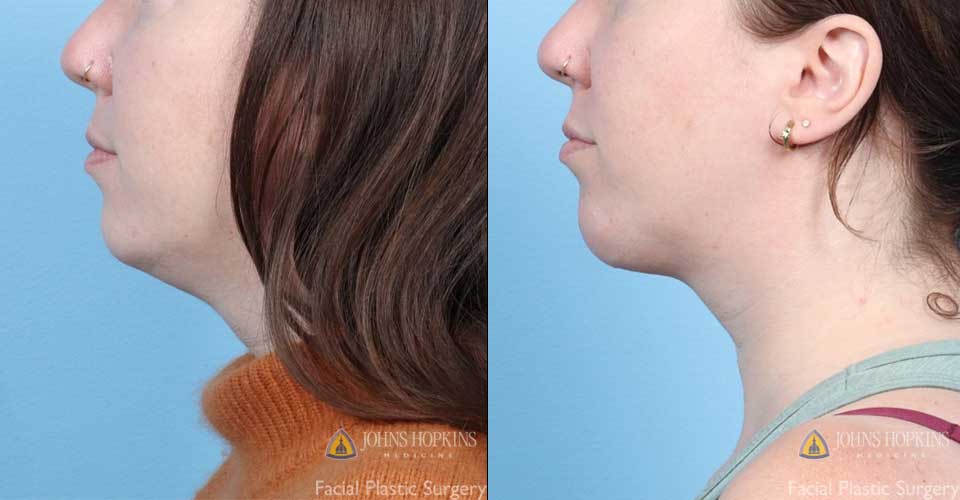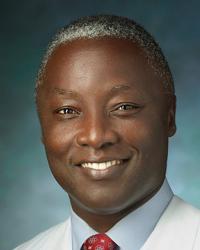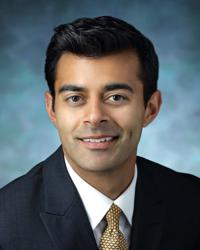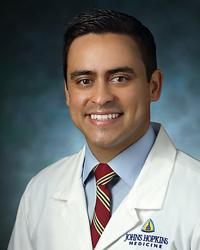Chin implants add volume to the chin and provide symmetry to the face or a more defined contour to the chin. Visible scarring is minimal after the procedure because our experts make the incision either inside the mouth or under the chin.
Learn more about:
Our Team | What To Expect | Before and After Photo
Request an Appointment
Schedule by phone
New and existing patients: 410-616-7191
Submit a request online
You may also request an appointment by filling out this form.
Why Choose Johns Hopkins for Chin Implants
Minimal Scarring Techniques
The advanced skills of our facial plastic surgeons in scarless and hidden-scar techniques mean you can look forward to a more natural appearance after a chin implant.
Holistic Approach
Our surgeons take a holistic approach to chin implants, considering the balance and harmony among each area of the face and its proportions.

Experienced Team
Our surgeons have specific training in the structure and function of the head and neck region, which allows us to offer a rare degree of skill and expertise — even in the most complex cases.
Chin Implants: What To Expect
Our expert team will provide anesthesia to ensure your comfort during the surgery. The surgeon will insert the chin implant through an incision inside the mouth or under the chin, leaving little to no visible scar. These removable implants are pliable and come in a variety of shapes and sizes to ensure a custom fit for each patient.
After the Procedure
Your surgeon will place bandages on the surgery area immediately after the procedure and provide you with care instructions, which may include:
- Keeping your head elevated to reduce swelling
- Applying cold compresses
- Taking prescribed pain medication
- Avoiding chewing for a few days after the procedure
Most people feel a tight sensation around the chin after surgery that will subside in one to two weeks, when the skin has adjusted to the implant.
Before and After Photo

Left: Before | Right: After
Surgeon: Dr. Shaun Desai
Description: A 38-year-old female who had neck liposuction and a chin implant to help make a sharper angle in her neck.
Facial Plastic and Reconstructive Surgery: Johns Hopkins | Q&A
Lisa Ishii, M.D., a Johns Hopkins facial plastic and reconstructive surgeon, answers frequently asked questions about facial cosmetic and reconstructive surgery. She provides information on when and why you should consult a facial plastic surgeon and what you can expect at your first appointment.





